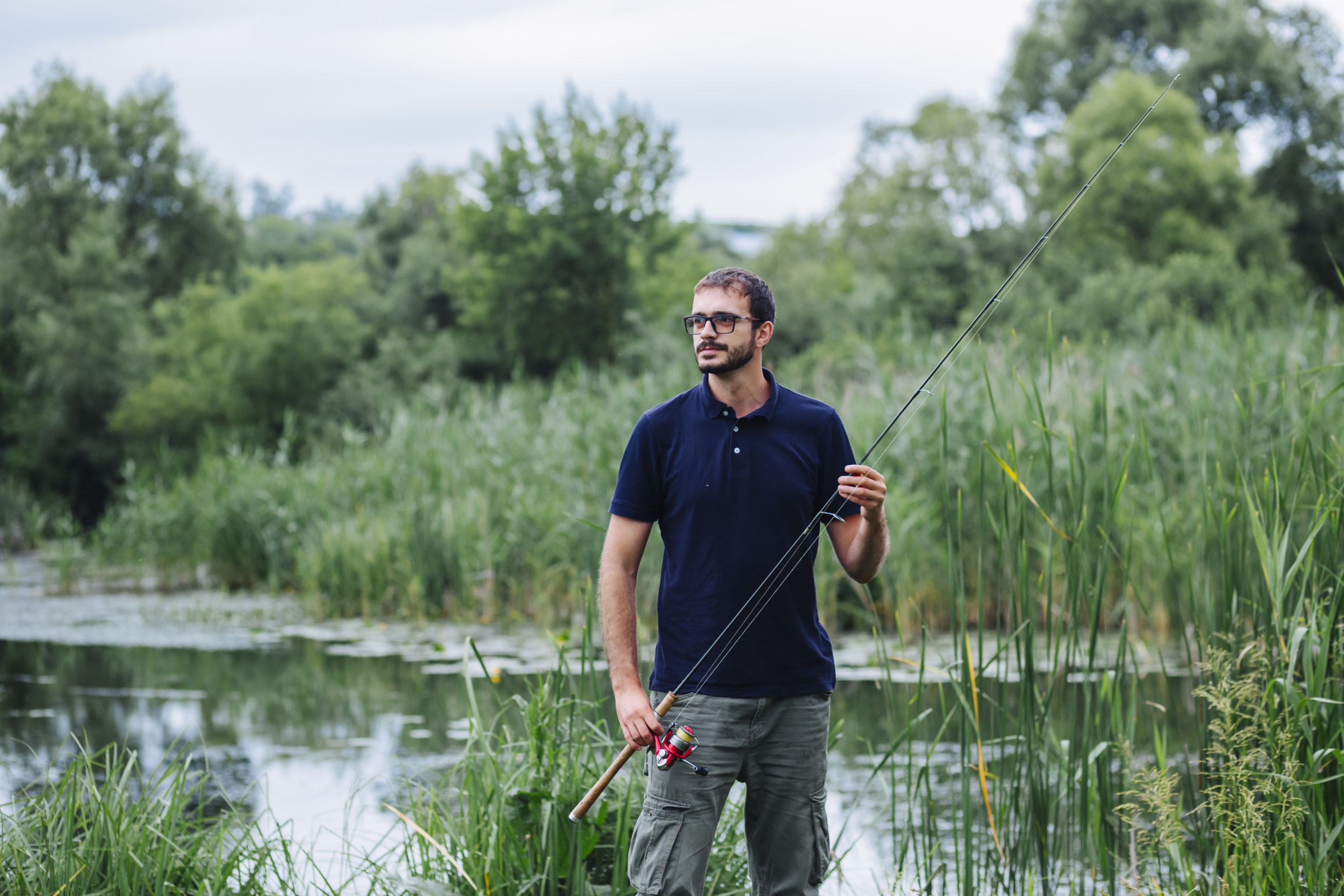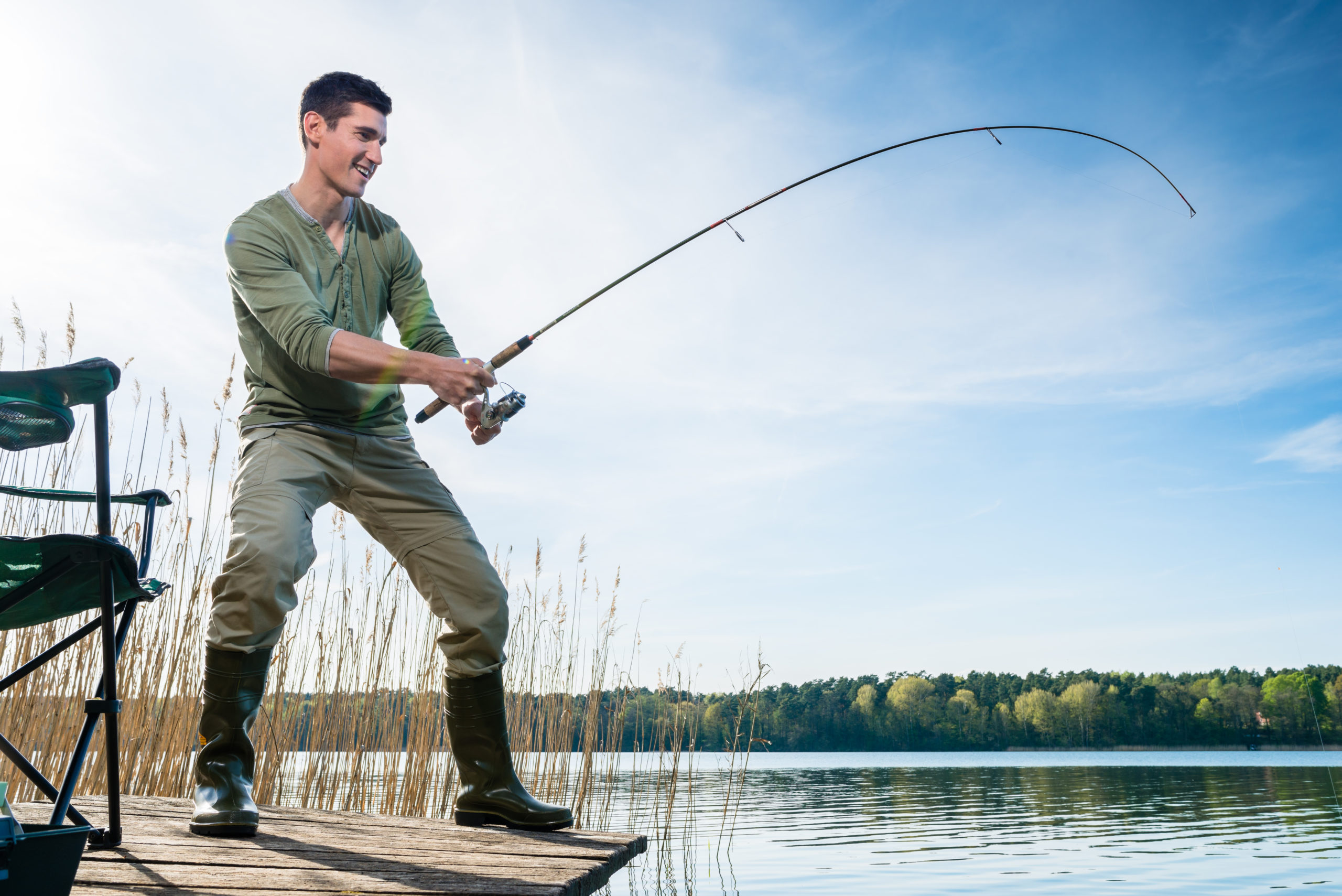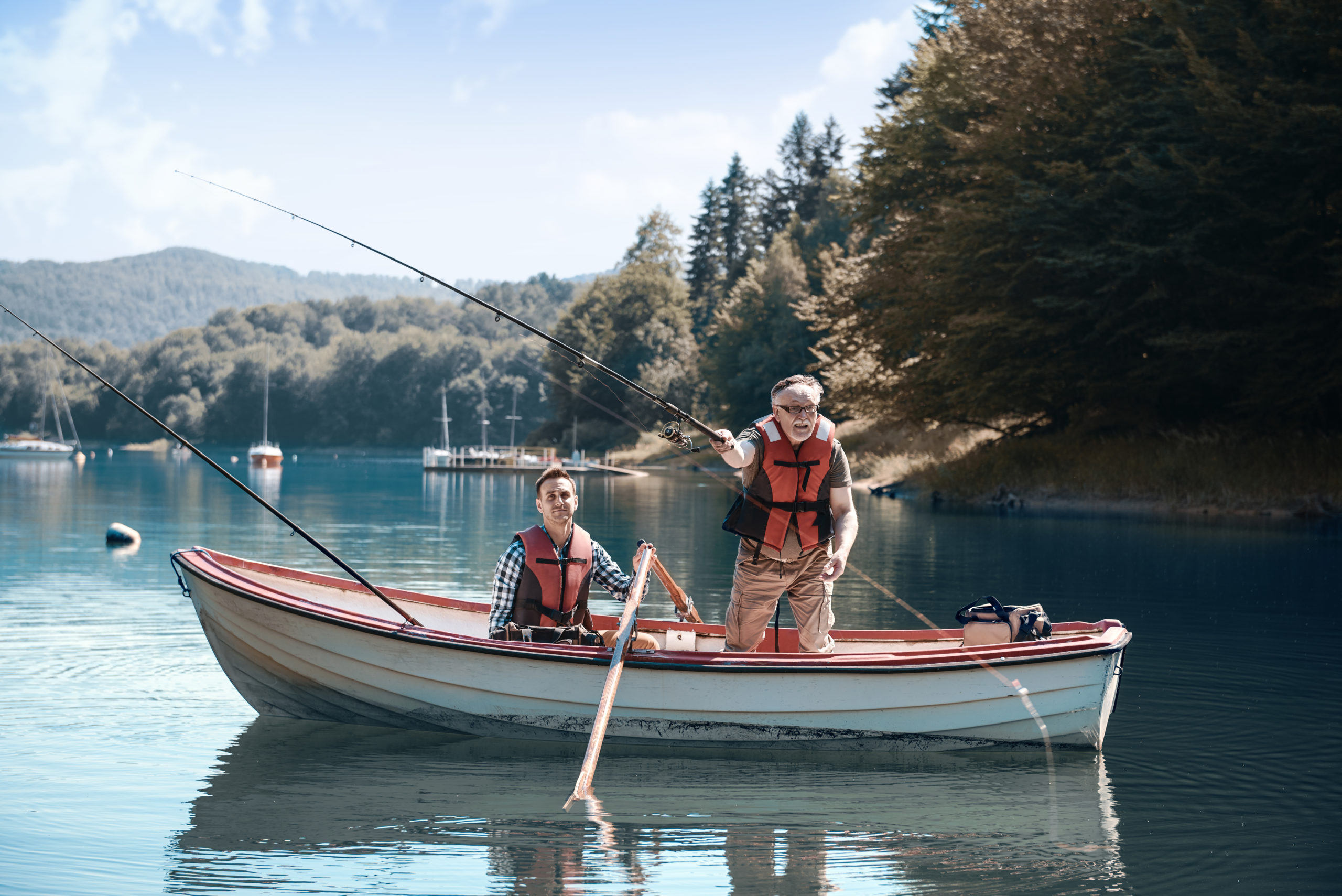
As you consider a life as a full-time fisherman, you’re bound to learn about a DNR fishing license. These are required for many areas, and it’s important that you have the right one.
Not having one of these licenses could lead to consequences, but not having one doesn’t mean that you can’t fish. You just have to fish where they allow you to.
Not sure whether or not you need a fishing license? Keep reading to learn what they are and how to get one.
Fishing Licenses and Permits – What is a DNR Fishing License?
A DNR fishing license is a type of fishing license offered by the Department of Natural Resources (DNR). It allows an individual to legally catch fish for recreational and commercial purposes in the United States. This type of license is acquired from the state you are fishing in and must be renewed annually.
In some states, a DNR fishing license also allows the individual to hunt small game. The regulations and requirements vary from state to state, so be sure to check with your local DNR before purchasing.
With a DNR license, individuals can access public waters and engage in fishing activities but are responsible for adhering to the state’s regulations and regulations of their chosen body of water.
What Are DNR Fishing Licenses?
An LDNR Fishing License is obtained through the Illinois Department of Natural Resources (LDNR) which allows a person to take fish in Illinois waters. The license is valid for one year. It allows the holder to fish on public waters, such as lakes and rivers, with or without the use of a motorized boat.
All fish caught on public water must be carefully managed and maintained, as the LDNR requires the release of unharvested species to help maintain a balanced and healthy fish population. Each state has its own rules about the size and number of fish that can be caught in a day. Thus, it is important to be aware of these requirements before fishing.
A license also covers other forms of fishing, such as bow-fishing and crabbing. Commercial fishermen will require additional permits to engage in these activities. With a DNR Fishing License, anglers can enjoy a day of fishing, safe in the knowledge that they are doing their part to help conserve our valuable fish populations.
Preserving Natural Resources With An MD DNR Fishing License
An MD DNR Fishing License is a document issued by the Maryland Department of Natural Resources that authorizes anglers to fish in state waters of the Chesapeake and Atlantic Coastal Bays, including:
- all tidal waters
- inland waters
- public lands
- public waters
The MD DNR Fishing license allows anglers to take and keep the number of fish they are legally allowed to take, as well as adhere to appropriate length and creel limits. The license also provides funds that are allocated to preserving, protecting, and improving the natural resources in the state.
With the fishing license, anglers are also provided with a record of their fishing activities and may submit the record as proof of their license and completion of legal hunting requirements. Additionally, anglers may report fish kills, boating violations, and poaching to the MD DNR with their license, and resource officers can take action based on the report.
Why is a DNR Fishing License Required?
A DNR fishing license is required to control fish populations across all states, to help:
- regulate
- protect
- manage
This license also helps protect sensitive bodies of water, habitats, and fishery resources for future generations. It ensures that only people who possess the necessary skills and knowledge to responsibly fish on public waters are allowed to do so. This of which in turn helps conserve and protect fish populations.
Moreover, it encourages anglers to practice catch and release, as well as abide by specific laws and regulations set in place to protect fish populations. Finally, the fishing license fees go towards stocking and maintaining fish populations, as well as programs and services related to fishing conservation and management.
Benefits of DNR Fishing License in Georgia and Surrounding Wildlife Area
Having a DNR fishing license offers many benefits to fishermen. A DNR fishing license provides access to a variety of fishing opportunities and discounts on equipment, bait, and lodging. DNR licenses give anglers the ability to purchase specialty permits to fish certain lakes and rivers, or for particular species.
The DNR also helps manage fish populations, making it easier for anglers to find and catch trophy fish. Additionally, DNR fishing licenses help to fund conservation and habitat management. These of which are essential for sustaining healthy fisheries.
Along with these benefits, a DNR fishing license also helps anglers feel a sense of stewardship and responsibility for their natural resources. Having a DNR license is not only a great way to express your love and respect for the outdoors. However, it’s also a great way to help keep fishing opportunities available for future generations to enjoy.
What Are the Fish Hunting License MA Requirements?
Depending on some factors, such as:
- age
- residency
- what type of water do you plan on fishing in
All anglers 16 and older must have a valid fishing license to take or try to take:
- fish
- frogs
- turtles
Residents and non-residents who wish to fish on the Great Ponds (globally important lakes and ponds) must also possess additional permits. Both residents and non-residents are required to obtain a Massachusetts Saltwater Fishing Permit if they are fishing in coastal and marine waters.
Residents 65 and older, as well as children under 15, can fish without a license. They must also adhere to all fishing regulations. If you’re planning on fishing in Massachusetts, it’s best to check current license requirements to ensure that you comply with all applicable laws.
Why Are Licenses for Mass Fish Hunt Required?
A mass fish hunt fishing license is required for anyone that wishes to participate in a mass fish hunt. This license allows mass fish hunts to be LEGAL and regulated. With this license, individuals are required to follow governmental rules and regulations such as:
- the amount of fish that can be taken
- the size limits of the fish and the harvestable size
- the legality of what type of catch is allowed
It is also important that these licenses are acquired in advance so that any recommendations given by the government can be followed. Furthermore, the license helps the state monitor and keep track of the number of fish that are being taken and makes sure that the populations of fish remain sustainable.
All in all, the mass fish hunt fishing license is an important way to help protect our fish and ensure that all participants remain under the law.
Why Is An RI Fishing License Required?
A Rhode Island fishing license is required to fish in the state’s waters. This is because the state needs to protect its fish and shellfish resources from illegal fishing operations, overharvesting, and pollution.
Additionally, having a fishing license helps fund fish and wildlife conservation projects and create thriving, healthy ecosystems in and around the state’s waters. Rhode Island’s fishing license also helps to manage the number of people fishing in the waters. This is to ensure that popular sites, such as Narragansett Bay, are not overpopulated. Thus, it can remain a good source of recreational fishing.
In addition, the license helps fishermen know where and when it is safe to fish. This provides them with proper regulations and guidelines. Ultimately, Rhode Island’s fishing license is an important tool to promote proper fishing and conserve the state’s precious fish and wildlife resources.
Why Is an MA Saltwater Fishing License Required?
A Massachusetts Saltwater Fishing License is required for any angler, fishing for:
- either for-hire or private boat operators
- fish in state or federal waters
- use any fishing gear from the coastline out to three miles offshore
Licenses are required due to the need for maintaining healthy ocean ecosystems and managing fish populations. The fee ensures that the state has the necessary funds for stocking programs and marine sanctuary protection.
By purchasing a license, anglers are contributing to the general effort to keep fish populations healthy and maintain the delicate balance of marine ecosystems. The fee also helps ensure that anglers are contributing to important research initiatives.
This research can help biologists and fish managers better understand the health of fish populations. They are also able to grasp how the health of those populations affects our environment.
Can I Get a Mass Fishing License Online?
You can get a Massachusetts fishing license online. All residents over the age of 15 and non-residents over the age of 12 are required to have a Massachusetts fishing license to fish in Massachusetts waters.
A single-person, freshwater fishing license can be purchased online or at a local Massachusetts Department of Fish and Game office. The cost of the license depends on the type of license and whether it’s for a resident or a non-resident. Some additional fees may apply depending on the type of fishing you are doing.
The licenses are valid from January 1 to December 31 of the current year and are non-refundable. To purchase a license online, simply go to the Massachusetts Department of Fish and Game website and follow the instructions.
If you are able to visit a local visitor center, you can also find a list of non-resident fishing hunting safety information and requirements by the state parks advisory committee.
Understand the Importance of a DNR Fishing License
Having a DNR Fishing License is vital for protecting our precious fisheries and the preservation of angling. Supporting these efforts is a collective responsibility to ensure that generations to come can experience the joys of fishing. Get a DNR Fishing License today, and be part of the solution!




